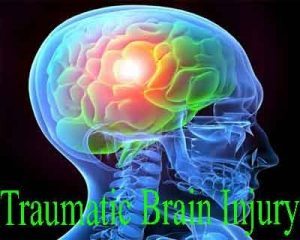- Home
- Editorial
- News
- Practice Guidelines
- Anesthesiology Guidelines
- Cancer Guidelines
- Cardiac Sciences Guidelines
- Critical Care Guidelines
- Dentistry Guidelines
- Dermatology Guidelines
- Diabetes and Endo Guidelines
- Diagnostics Guidelines
- ENT Guidelines
- Featured Practice Guidelines
- Gastroenterology Guidelines
- Geriatrics Guidelines
- Medicine Guidelines
- Nephrology Guidelines
- Neurosciences Guidelines
- Obs and Gynae Guidelines
- Ophthalmology Guidelines
- Orthopaedics Guidelines
- Paediatrics Guidelines
- Psychiatry Guidelines
- Pulmonology Guidelines
- Radiology Guidelines
- Surgery Guidelines
- Urology Guidelines
Link found between traumatic brain injury and Parkinson's, but not Alzheimer's

Traumatic brain injury (TBI) with a loss of consciousness (LOC) may be associated with later development of Parkinson's disease but not Alzheimer's disease or incident dementia, according to a study conducted at the Icahn School of Medicine at Mount Sinai and the University of Washington School of Medicine. The research, published in JAMA Neurology, contradicts common assumptions about the relationship between TBI and Alzheimer's disease as found in other high profile studies.
There is great interest in the late effects of TBI and the widespread public health implications. The Centers for Disease Control and Prevention estimates that more than 1.3 million Americans visit an emergency department each year because of a TBI-related injury.
The research team studied head injury data from 7,130 older adults the largest study ever on this topic as part of three prospective cohort studies that performed annual or biennial cognitive and clinical testing. Of this group, 865 people had suffered TBI with LOC at some point before the study began. Of the 865, 142 had been unconscious for more than one hour. The researchers evaluated associations between TBI and late-life clinical outcomes, such as dementia, Alzheimer's disease, mild cognitive impairment, Parkinson's disease and change in parkinsonian signs. Roughly 23 percent of the study group had brain autopsies, and in that group researchers searched for any link between TBI and neuropathological findings. Neuropathology is considered the gold standard for diagnosing neurodegenerative disease.
No statistically significant relationship between TBI with LOC and dementia risk was discovered when the group with TBI with LOC was compared with the 1,537 patients who developed dementia during the study. Results for Alzheimer's disease (diagnosed in 1,322 study participants) were similar. However, regression data showed a strong association between TBI with LOC greater than an hour and Parkinson's disease (117 cases during the study). Neuropathological findings at autopsy (1,652 autopsy cases) showed no association between TBI with LOC and beta amyloid plaques or neurofibrillary tangles, the hallmark indicators of Alzheimer's disease. However, the autopsies found an increased risk for Lewy bodies (abnormal aggregates of protein) in TBI with LOC less than an hour and an increased risk of cerebral microinfarcts (microscopic stroke) in TBI with LOC more than an hour.
"The results of this study suggest that some individuals with a history of TBI are at risk for late-life neurodegeneration but not Alzheimer's disease," says Kristen Dams-O'Connor, PhD, Co-Director of the Brian Injury Research Center and Associate Professor in the Department of Rehabilitative Medicine at the Icahn School of Medicine at Mount Sinai. "We want to identify and treat post TBI neurodegeneration while people are still alive, but to do this, we need to first understand the disease. Prospective TBI brain donation studies can help us characterize post-TBI neurodegeneration, identify risk factors, and develop effective treatments."
These findings suggest that clinicians may be misdiagnosing late-life TBI-related neurodegeneration as Alzheimer's disease, and therefore treatment targeting Alzheimer's would be ineffective in helping late-life decline among patients who experienced TBI. Further work is needed to characterize post-TBI neurodegeneration.

Disclaimer: This site is primarily intended for healthcare professionals. Any content/information on this website does not replace the advice of medical and/or health professionals and should not be construed as medical/diagnostic advice/endorsement or prescription. Use of this site is subject to our terms of use, privacy policy, advertisement policy. © 2020 Minerva Medical Treatment Pvt Ltd